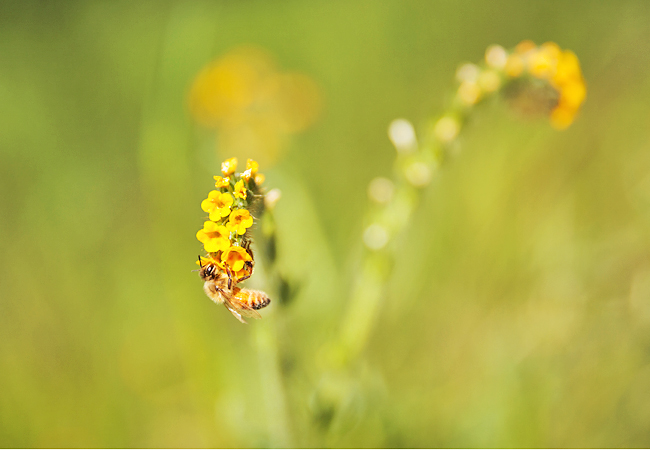Allyson Chiu
THE WASHINGTON POST – If you think backyard and rooftop beehives are helping save the bees, think again, experts said.
A growing body of research suggests that the explosion of urban beekeeping involving honeybees in many cities and towns may be hurting critical local wild bee populations.
A recent peer-reviewed study conducted in Montreal, Canada found that places with the largest increase in domesticated honeybees also had the fewest wild bee species – with small bees, which are only able to fly shorter distances to find food, appearing to be especially at risk.
“The honeybee has been promoted as the symbol of helping the environment and biodiversity, and really it’s not that,” said former postdoctoral researcher at Concordia University in Montreal and the study’s lead author Gail MacInnis.
“You would never start keeping chickens to help save wild bird species.”
There are, however, benefits to urban beekeeping – as long as it’s done in moderation and hives are managed responsibly, experts said. Here’s what you need to know about keeping bees and what you can do if you want to help pollinators.

‘VERY SUCCESSFUL INVADERS’
Although honeybees are among the most common insects in the world, they aren’t native to many of the places where they are found, said associate professor and conservation scientist at York University who studies pollinators Sheila Colla. The western or European honeybee, the species commonly found in the United States, is native to Europe, Asia and the Middle East.
“Honeybees are very successful invaders,” Colla said.
Not only can these bees fly long distances but they are also able to effectively communicate with one another through a body-jiggling dance language about where nectar is. Introducing honeybee hives to an area can be a problem for local wild bees, which often end up competing for the same food sources. A single honey bee colony can be home to tens of thousands of bees.
“For people who say they want to save the bees and they have a honeybee hive, it’s kind of like throwing Asian carp into the Great Lakes and saying you want to save the native fish,” Colla said. “But obviously, they’re just taking the same resources that the native fish are.”
Hives that aren’t responsibly managed could also be sources of parasites or diseases that may quickly spread to wild bees, Colla said.
HOW TO SAVE THE BEES
First, it’s important to know that honeybees aren’t really in need of saving, said MacInnis, now a research scientist at Canada’s National Bee Diagnostic Centre in Beaverlodge, Alberta.
“Though honeybees have their own stressors, they are not actually in decline on a global scale.”
Wild pollinators, on the other hand, are declining on a global scale and do need help.
President of the DC Beekeepers Alliance, a nonprofit association, Jan Day said her group frequently gets asked the same question: “What can I do to save the bees?
“We assure them the managed honeybee is doing just fine,” Day said. She instead urged people to focus on planting native plants and to encourage others to do so as well.
Experts recommend planting a variety of native flowering species that bloom at different times during the year wherever possible.
Consider choosing some flowers that bloom early or late in the season, which is typically when food resources are scarce for bees, MacInnis said.
Mowing less and cultivating pollinator-friendly lawns and gardens could also be helpful, experts said. Native wild bees “do so much work and they’re so underappreciated”, Colla said. “Especially with climate change, if we want to have resilient ecosystems, resilient cities, we need to have as many species of bees as possible in our cities.”
RESPONSIBLE BEEKEEPING
But experts said doing away with all urban beekeeping isn’t the answer.
“We’re not saying ban urban beekeeping,” MacInnis said.
“There is room for it in cities. It’s just right now we’re not managing it very responsibly” in certain places.
Cities and towns that allow beekeeping should have caps on hive density and require people to register their bee colonies, experts said. In DC, for instance, residents have to register and are largely limited to four hives on a single property, said Day, who lives on Capitol Hill and has kept bees for more than a decade.
Beekeepers also need to understand the responsibility they’re taking on, Colla said. Backyard bees should be treated like other domestic pets, she said.
“You’re watching your bees,” she said. “You’re taking care of them. You’re treating them if they have illnesses. You’re feeding them if they look like they’re short on food.”





